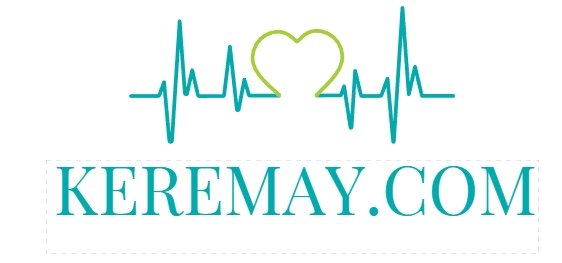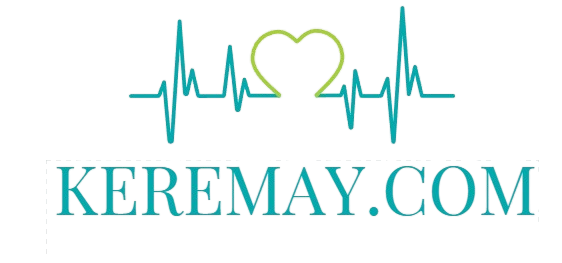In today’s ever-changing world, plant-based nutrition is having a growing presence. It’s been referred to as the “new sustainable” and embraced by many for its health benefits. From bodybuilders to nutritionists, plant-based nutrition is being embraced for its advantages, making it more accessible to the masses. This article will take a look at the benefits of a whole foods plant-based diet.
Plant-Powered Wellness: The Advantages of a Whole Foods Diet
We all know that eating a balanced diet is essential for our health, but did you know that a diet based around plant-based foods has several advantages for overall wellness? Whole food plant-based eating can help fuel healthy bodies, and there’s research to back it up.
Benefits for Chronic Disease Management
- A plant-heavy diet is linked to a reduced risk of type 2 diabetes, cancer, stroke, and other chronic diseases.
- Whole foods contain high levels of essential nutrients and antioxidants, which can help boost general health and reduce risk of inflammation.
- Plants are naturally lower in calories while providing essential vitamins, minerals, and dietary fiber that can help maintain a healthy weight.
Improve Mental Health and Cognition
- Focus on plant-based proteins and leafy greens can reduce risk of depression and anxiety.
- Eating colorful fruits and vegetables is associated with improved cognitive thinking and memory.
- Plant-based meals rich in iron and omega-3s, such as nuts and legumes, can boost energy levels and provide a clearer mind.
Eliminate Animal Products and Increase Sustainability
- Veganism, which excludes all animal products, has a lower environmental impact due to reduced water and land usage.
- Animal-based diets require more resources to produce, meaning consuming fewer animal products can reduce our ecological footprint.
- Consuming more plant-based proteins and fats remove toxins from the body while lowering carbon emissions.
There are plenty of delicious and nutritious meals to make with plant-based ingredients. A whole foods plant-powered diet can be a great way to promote health and well-being while being more eco-friendly.
Rediscovering Nature: Eating Nature’s Nourishment
In a fast-paced world where processed, unhealthy food is all too accessible, eating nature’s nourishment can become a lost concept. Fortunately, it is possible to rediscover the power of Mother Nature’s produce and transform both our health and our relationship with the natural world. Here’s how:
- Visit your local farmers’ market. Not only are they great sources of fresh fruits and vegetables, but also the perfect opportunity to support local growers in your community. Plus, it can also be a great way to expand your palate.
- Grow your own vegetables. This can be as small scale as a selection of herbs in pots, in a window box or even a large vegetable patch from scratch. If you don’t have the space, there are plenty of community gardens that you can join.
- Shop organic. Whether you visit your local health food store or order your groceries online, make sure you always read the labels and do your best to purchase organic produce whenever possible.
Eating naturally can also benefit our environment. Not only are organic-based diets usually associated with fewer pesticides or GMO’s used in production, but consuming foods in their natural state also generates fewer emissions from packaging and transport.
By simply eating in line with nature, it is often possible to achieve better physical and mental well-being. With a regular diet of nature’s nourishing ingredients, you may notice improvements in your sleep, alertness and digestion.
Whether you want to make healthier choices, to support local communities or even reduce your impact on the environment, the advantages of choosing nature’s ingredients over processed meals are clear. Rediscovering nature’s nourishment can be enjoyable, satisfying and an essential part of a balanced lifestyle.
Healing with Whole Foods: A Plant-Based Nutritional Approach
There’s no better way to reap the benefits of nourishing your body than with whole foods. Eating a diet that’s primarily composed of plant-based ingredients can provide essential vitamins, minerals, antioxidants, and other key nutrients we need for a healthy lifestyle. Here, we’ll take an in-depth look at the potential healing benefits of consuming a plant-based diet.
Organic is key: Whenever possible, try to incorporate organic fruits and vegetables into your diet. Organic foods not only contain fewer chemical additives, but they can also be richer in minerals, antioxidants, and other compounds that help you reach your optimal health. If organic products are too cost-prohibitive, conventional vegetables still offer health benefits.
Essential Whole Foods to Include:
- Dark leafy greens: Kale, spinach, swiss chard, and collard greens are packed with vitamins, minerals, iron, and other nutrients needed for optimal health.
- Nuts and Seeds: Nuts and seeds provide healthy sources of fats, vitamins, minerals, and protein.
- Legumes: Lentils, black beans, garbanzo beans, navy beans, and pinto beans are all great sources of fiber, iron, and magnesium.
- Whole grain products: Bulgar, quinoa, brown rice, and oats are all excellent choices for getting a great carbohydrate-based meal.
- Fruits: Apples, oranges, bananas, pears, and avocados are great sources of antioxidants and fiber.
Moderation: When consuming any type of dietary regimen, be sure to practice moderation. Eating too much of any food can cause health problems, so it’s important to find the right balance for your body. Eating a variety of whole foods can help you obtain all the nutrients you need to put you on the path to a healthier lifestyle.
Make It Your Own: Eating a whole-foods, plant-based diet doesn’t have to be boring. Feel free to experiment and get creative. Adding a variety of spices, herbs, and seasonings can completely transform your dish and add a wealth of flavor and nutrients to your diet. Whole foods offer a plethora of potential healing benefits you can explore for yourself – make the most out of the dietary approach that works best for you and your body!
It’s All in the Plants: Maximizing Nutritional Quality to Your Plate
The notion of packing the most nutrition into each bite of food is not a new one, but with recent discoveries in the science of nutrition, the importance of eating nutrient-rich plants is now more important than ever. Eating a wide variety of plants is the perfect solution for incorporating a diverse range of vitamins, minerals, and other essential nutrients to your diet. Here is how you can maximize the nutritional quality of plants on your plate.
- Choose a plethora of plants: Fruits, vegetables, nuts, seeds, and even whole grains can all provide essential vitamins and minerals that keep you healthy from the inside out. Fill your plate with color and choose a wide range of different plants to reap maximum benefits.
- Seek out plant-based sources of protein: If you are trying to hit nutritional targets, one key element to consider is protein. Did you know that plants can provide significantly more than the recommended daily allowance of protein? Lentils, beans, nuts, and green peas are packed with protein and other key vitamins and minerals.
- Include key nutrients for your body: Your body craves a variety of nutrients on the regular. For instance, you’ll want to think about including Vitamin D, Vitamin B12, calcium, iron, zinc, and omega-3 into your diet. Meats have long been used as key sources but luckily, many plant-based foods such as mushrooms, tofu, and chia seeds, provide many of these minerals as well!
- Rethink your snacks: You don’t always need to reach for chips or crackers to snack. Opt for plant-based snacks like kale chips, edamame, or dried fruit. All of these are packed with essential vitamins, minerals, and fiber, and are often more flavorful than processed chips.
Not all plants are created equal. Some have more concentrated levels of certain nutrients than others. This means that you’ll need to research which plants boast the most concentrated amounts of essential vitamins, minerals, andants to ensure you’re getting as much as your body needs. Did you know, for instance, that spinach is an excellent source of iron, magnesium, zinc, and Vitamin K?.
Eat what your body needs – There’s no one-size-fits-all when it comes to nutrition. What works for one person may be different for another. But, regardless, the focus should always be on providing nutrient-rich plants to your plate to ensure maximum benefits and energy throughout the day.
As the interest in plant-based nutrition continues to grow, so too will the ways to enjoy its many benefits. With its focus on fresh, whole foods, people from all walks of life can find a new path to health, balance, and sustainability — both for our bodies and our planet. It’s time to embrace the power of plant-based nutrition and explore the world of whole foods!



